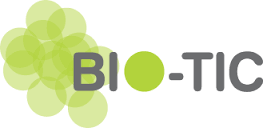 BRUSSELS, June 23rd, 2015 –TODAY, the BIO-TIC project- The Industrial Biotech Research and Innovation Platforms Centre – towards Technological Innovation and Solid Foundations for a Growing Industrial Biotech Sector in Europe – has launched its final roadmap for tackling barriers to industrial biotechnology in Europe entitled ‘The bioeconomy enabled – A roadmap to a thriving industrial biotechnology sector in Europe’. The roadmap was introduced at the project’s high level policy conference, entitled “From bugs to business: Unlocking the Bioeconomy in Europe”, organised at the Royal Flemish Academy of Belgium for Science and the Arts in Brussels. The conference brought together industry, academia, policy makers, innovation agencies and other stakeholders to discuss the actions needed to stimulate the development of industrial biotechnology in Europe.
BRUSSELS, June 23rd, 2015 –TODAY, the BIO-TIC project- The Industrial Biotech Research and Innovation Platforms Centre – towards Technological Innovation and Solid Foundations for a Growing Industrial Biotech Sector in Europe – has launched its final roadmap for tackling barriers to industrial biotechnology in Europe entitled ‘The bioeconomy enabled – A roadmap to a thriving industrial biotechnology sector in Europe’. The roadmap was introduced at the project’s high level policy conference, entitled “From bugs to business: Unlocking the Bioeconomy in Europe”, organised at the Royal Flemish Academy of Belgium for Science and the Arts in Brussels. The conference brought together industry, academia, policy makers, innovation agencies and other stakeholders to discuss the actions needed to stimulate the development of industrial biotechnology in Europe.
According to the BIO-TIC partners, the EU market for industrial biotechnology-derived products is expected to increase from 28 billion euro in 2013 to 50 billion euro in 2030. This growth will be largely driven by replacement of fossil carbon materials, reflecting Europe’s desire to develop more sustainable and resource-efficient products and processes.
However, in spite of this market growth, significant hurdles remain and hamper the full development of industrial biotechnology in Europe. For example, the principal barrier to fully exploiting the industrial biotechnology opportunities in Europe relates to product cost-competitiveness, both compared to fossil alternatives and to equivalent products from elsewhere in the world. To tackle this and other hurdles, and to ensure that most of this potential is realised in Europe, the BIO-TIC roadmap outlines ten pragmatic recommendations for action. These are to:
- Improve opportunities for feedstock producers within the bioeconomy;
- Investigate the scope for using novel biomass;
- Develop a workforce which can maintain Europe’s competitiveness in industrial biotechnology;
- Introduce a long-term, stable and transparent policy and incentive framework to promote the bioeconomy;
- Improve public perception and awareness of industrial biotechnology and biobased products;
- Identify, leverage and build upon EU capabilities for pilot and demonstration facilities;
- Promote the use of co-products;
- Improve the bioconversion and downstream processing steps;
- Improve access to financing for large scale biorefinery projects;
- Develop stronger relationships between conventional and non-conventional players in the value chain.
Nathalie Moll, Secretary General of EuropaBio, which coordinated the project, said ‘we are thrilled to see BIO-TIC come to fruition. The roadmap represents a comprehensive summary of expertise and insight from across the Member States. In 10 recommendations, it highlights ways of capturing the huge potential for environmental, societal and economic solutions that this cutting-edge technology offers in the development of a more competitive, circular EU bioeconomy’.
All BIO-TIC roadmaps can be downloaded via the web portal http://www.industrialbiotech-europe.eu/.
For more information, contact: Claire Gray, EuropaBio, BIO-TIC Project Co-ordinator, on desk phone +32 2 739 11 78 or via e-mail at bio-tic@europabio.org.
Communications contact: Maria Andrielou, Cefic, on desk phone +32 2 676 73 68 or via e-mail at man@cefic.be.
Source
EuropaBio, press release, 2015-06-25.
Supplier
BIO-TIC
EuropaBio
European Chemical Industry Council (CEFIC)
Royal Flemish Academy of Belgium for Science and the Arts
Share
Renewable Carbon News – Daily Newsletter
Subscribe to our daily email newsletter – the world's leading newsletter on renewable materials and chemicals









